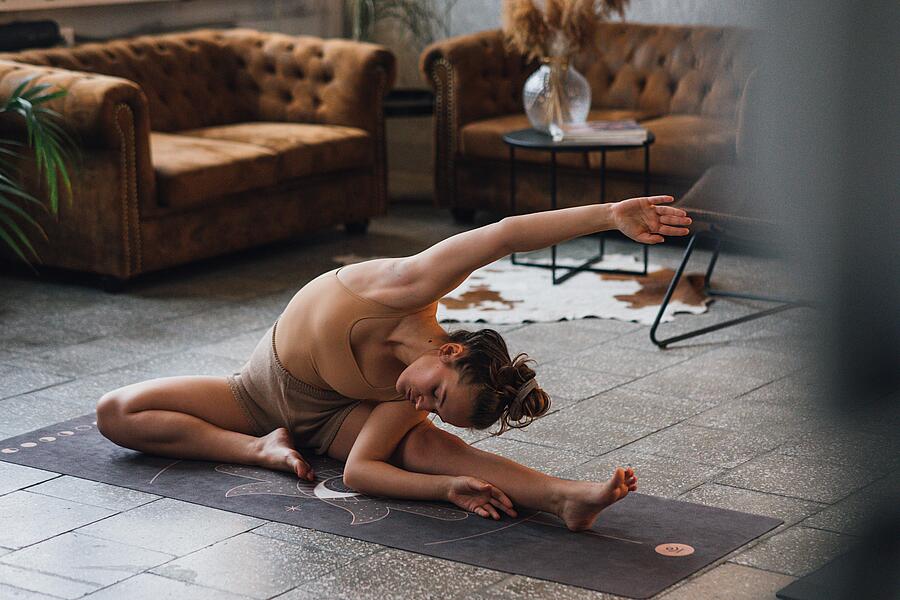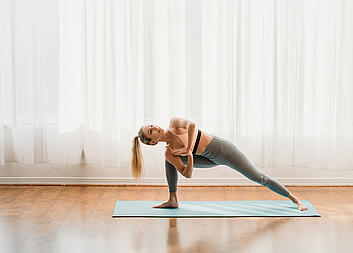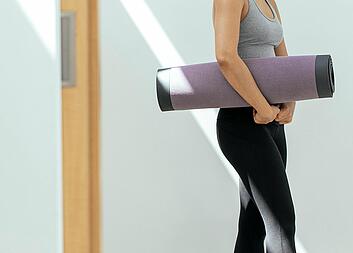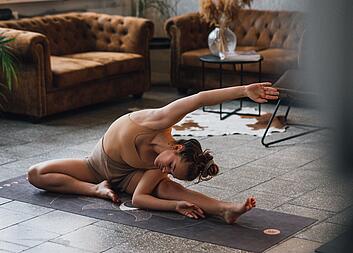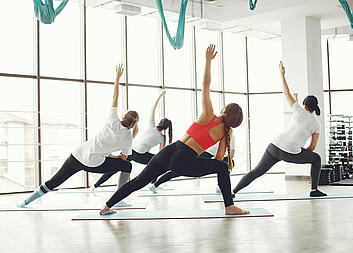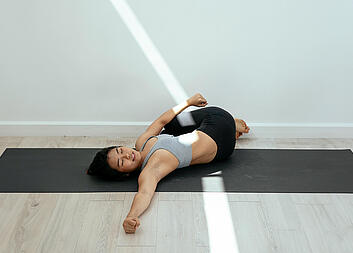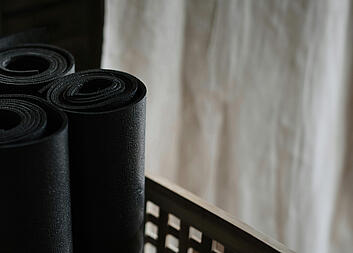Posture and back pain
Pilates is known for its positive effect on posture and its ability to relieve back pain. By strengthening the deep muscles in the torso area, especially the abdominal, back and pelvic floor muscles, the spine is stabilised and an upright posture is promoted. Regular Pilates training can help to compensate for muscular imbalances and thus reduce or prevent lower back pain.
Muscle strengthening and flexibility
Pilates aims to strengthen all muscle groups evenly, with a particular focus on the deeper muscles that are often neglected. Through controlled and precise movements, the muscles are not only strengthened but also stretched, which leads to improved flexibility. This combination of strengthening and stretching helps to keep the body supple and strong.


